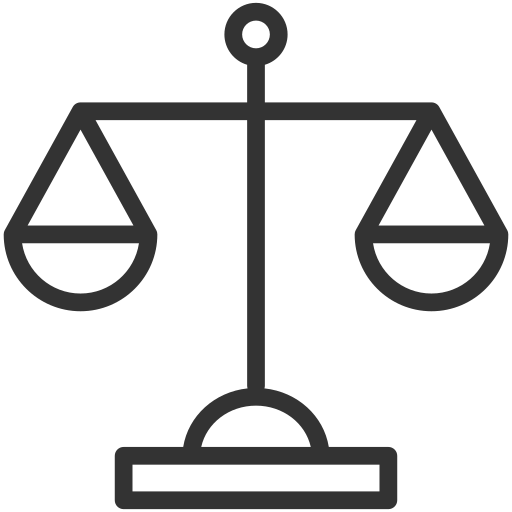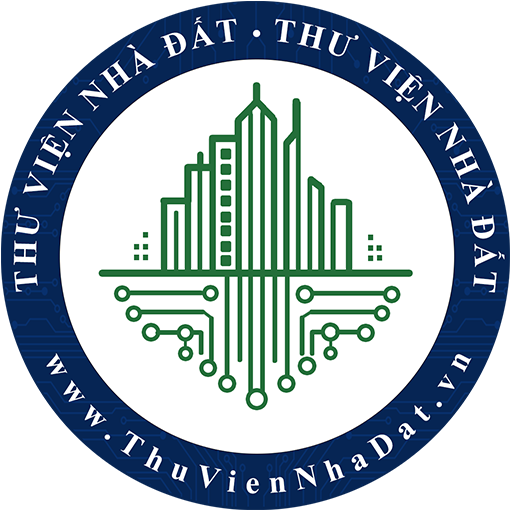|
QUỐC
HỘI |
CỘNG
HÒA XÃ HỘI CHỦ NGHĨA VIỆT NAM |
|
Luật số: 82/2025/QH15 |
Hà Nội, ngày 24 tháng 6 năm 2025 |
SỬA ĐỔI, BỔ SUNG MỘT SỐ ĐIỀU CỦA LUẬT TỔ CHỨC VIỆN KIỂM SÁT NHÂN DÂN
Căn cứ Hiến pháp nước Cộng hòa xã hội chủ nghĩa Việt Nam đã được sửa đổi, bổ sung một số điều theo Nghị quyết số 203/2025/QH15;
Quốc hội ban hành Luật sửa đổi, bổ sung một số điều của Luật Tổ chức Viện kiểm sát nhân dân số 63/2014/QH13.
Điều 1. Sửa đổi, bổ sung một số điều của Luật Tổ chức Viện kiểm sát nhân dân
1. Sửa đổi, bổ sung điểm c khoản 3 Điều 4 như sau:
“c) Xử lý vi phạm; xử phạt vi phạm hành chính đối với hành vi cản trở hoạt động tố tụng của Viện kiểm sát nhân dân; yêu cầu, kiến nghị cơ quan, tổ chức, cá nhân có thẩm quyền khắc phục, xử lý nghiêm minh vi phạm pháp luật trong hoạt động tư pháp; kiến nghị cơ quan, tổ chức hữu quan áp dụng các biện pháp phòng ngừa vi phạm pháp luật và tội phạm;”.
2. Sửa đổi, bổ sung khoản 2 Điều 7 như sau:
“2. Tại Viện kiểm sát nhân dân tối cao, Viện kiểm sát nhân dân tỉnh, thành phố, Viện kiểm sát quân sự trung ương, Viện kiểm sát quân sự quân khu và tương đương thành lập Ủy ban kiểm sát để thảo luận và quyết định theo đa số những vấn đề quan trọng, cho ý kiến về các vụ án, vụ việc trước khi Viện trưởng quyết định theo quy định tại các điều 43, 47, 53 và 55 của Luật này.”.
3. Sửa đổi, bổ sung khoản 3 Điều 23 như sau:
“3. Viện trưởng Viện kiểm sát nhân dân khu vực, Viện trưởng Viện kiểm sát nhân dân tỉnh, thành phố, Viện trưởng Viện kiểm sát quân sự khu vực, Viện trưởng Viện kiểm sát quân sự quân khu và tương đương giải quyết khiếu nại đối với quyết định, hành vi trái pháp luật trong việc tạm giữ, tạm giam của cơ quan, người có thẩm quyền thuộc trách nhiệm kiểm sát của mình.
Viện trưởng Viện kiểm sát cấp trên có thẩm quyền giải quyết khiếu nại đối với việc giải quyết khiếu nại của Viện trưởng Viện kiểm sát cấp dưới; quyết định giải quyết khiếu nại của Viện trưởng Viện kiểm sát cấp trên là quyết định có hiệu lực pháp luật.”.
4. Sửa đổi, bổ sung Điều 28 như sau:
“Điều 28. Nhiệm vụ, quyền hạn của Viện kiểm sát nhân dân khi kiểm sát thi hành án dân sự, thi hành án hành chính
1. Kiểm sát việc cấp, chuyển giao, giải thích, sửa chữa, bổ sung bản án, quyết định của Tòa án.
2. Trực tiếp kiểm sát việc thi hành án của cơ quan thi hành án dân sự, Chấp hành viên, tổ chức, cá nhân khác được giao nhiệm vụ tổ chức thi hành án dân sự, cơ quan, tổ chức và cá nhân có liên quan.
3. Kiểm sát hồ sơ về thi hành án.
4. Tham gia phiên họp, phát biểu quan điểm của Viện kiểm sát nhân dân về việc xét miễn, giảm nghĩa vụ thi hành án đối với khoản thu nộp ngân sách nhà nước.
5. Kiểm sát hoạt động của cơ quan, tổ chức, cá nhân có liên quan trong việc thi hành án.
6. Yêu cầu Tòa án, cơ quan thi hành án dân sự, Chấp hành viên, tổ chức, cá nhân khác được giao nhiệm vụ tổ chức thi hành án dân sự, cơ quan, tổ chức và cá nhân liên quan đến việc thi hành án thực hiện các việc sau đây:
a) Ra quyết định về thi hành án đúng quy định của pháp luật;
b) Thi hành bản án, quyết định theo quy định của pháp luật;
c) Tự kiểm tra việc thi hành án và thông báo kết quả cho Viện kiểm sát nhân dân;
d) Cung cấp hồ sơ, tài liệu, vật chứng có liên quan đến việc thi hành án.
Yêu cầu quy định tại các điểm a, b và d khoản này phải được thực hiện ngay; yêu cầu quy định tại điểm c khoản này phải được thực hiện trong thời hạn 30 ngày, kể từ ngày nhận được yêu cầu.
7. Kiến nghị Tòa án, cơ quan thi hành án dân sự, Chấp hành viên, tổ chức, cá nhân khác được giao nhiệm vụ tổ chức thi hành án dân sự, cơ quan, tổ chức, cá nhân thực hiện đầy đủ trách nhiệm trong việc thi hành án.
8. Kháng nghị quyết định của Tòa án, quyết định, hành vi của Thủ trưởng, Chấp hành viên cơ quan thi hành án dân sự, tổ chức, cá nhân khác được giao nhiệm vụ tổ chức thi hành án dân sự theo quy định của pháp luật; yêu cầu đình chỉ việc thi hành, thu hồi, sửa đổi, bổ sung hoặc huỷ bỏ quyết định có vi phạm pháp luật trong việc thi hành án, chấm dứt hành vi vi phạm pháp luật.
9. Thực hiện nhiệm vụ, quyền hạn khác trong kiểm sát thi hành án dân sự, thi hành án hành chính theo quy định của pháp luật.”.
5. Sửa đổi, bổ sung Điều 36 như sau:
“Điều 36. Công tác xây dựng pháp luật
Viện kiểm sát nhân dân tối cao có quyền đề xuất nhiệm vụ lập pháp, đề xuất xây dựng, trình dự án luật, nghị quyết của Quốc hội, pháp lệnh, nghị quyết của Ủy ban Thường vụ Quốc hội; chủ trì, phối hợp với các cơ quan, tổ chức hữu quan trong công tác xây dựng pháp luật; ban hành văn bản pháp luật thuộc thẩm quyền theo quy định của Luật Ban hành văn bản quy phạm pháp luật và quy định khác của pháp luật có liên quan.”.
6. Sửa đổi, bổ sung Điều 40 như sau:
“Điều 40. Hệ thống Viện kiểm sát nhân dân
1. Viện kiểm sát nhân dân tối cao.
2. Viện kiểm sát nhân dân tỉnh, thành phố (sau đây gọi là Viện kiểm sát nhân dân cấp tỉnh).
3. Viện kiểm sát nhân dân khu vực.
4. Viện kiểm sát quân sự các cấp.”.
7. Sửa đổi, bổ sung Điều 41 như sau:
“Điều 41. Nhiệm vụ, quyền hạn của Viện kiểm sát nhân dân các cấp
1. Viện kiểm sát nhân dân tối cao thực hành quyền công tố, kiểm sát hoạt động tư pháp, góp phần bảo đảm pháp luật được chấp hành nghiêm chỉnh và thống nhất.
2. Viện kiểm sát nhân dân cấp tỉnh thực hành quyền công tố, kiểm sát hoạt động tư pháp trong phạm vi địa phương mình.
3. Viện kiểm sát nhân dân khu vực thực hành quyền công tố, kiểm sát hoạt động tư pháp trong phạm vi thẩm quyền theo lãnh thổ.”.
8. Sửa đổi, bổ sung một số điểm, khoản của Điều 42 như sau:
a) Sửa đổi, bổ sung điểm d khoản 1 như sau:
“d) Các Viện Công tố và Kiểm sát xét xử phúc thẩm; các cục, vụ, viện khác và tương đương;”;
b) Sửa đổi, bổ sung khoản 2 như sau:
“2. Viện kiểm sát nhân dân tối cao có Viện trưởng, các Phó Viện trưởng Viện kiểm sát nhân dân tối cao, Kiểm sát viên, Kiểm tra viên; Thủ trưởng, các Phó thủ trưởng Cơ quan điều tra, Điều tra viên, Cán bộ điều tra; Giám định viên kỹ thuật hình sự; công chức khác, viên chức và người lao động khác.”.
9. Sửa đổi, bổ sung khoản 2 Điều 43 như sau:
“2. Ủy ban kiểm sát Viện kiểm sát nhân dân tối cao họp do Viện trưởng chủ trì để thảo luận và quyết định những vấn đề quan trọng sau đây:
a) Chương trình, kế hoạch công tác của ngành Kiểm sát nhân dân;
b) Dự án luật, pháp lệnh, nghị quyết trình Quốc hội, Ủy ban Thường vụ Quốc hội; báo cáo của Viện trưởng Viện kiểm sát nhân dân tối cao trình Quốc hội, Ủy ban Thường vụ Quốc hội, Chủ tịch nước;
c) Bộ máy làm việc của Viện kiểm sát nhân dân tối cao;
d) Báo cáo của Viện trưởng Viện kiểm sát nhân dân tối cao trình Ủy ban Thường vụ Quốc hội về những ý kiến của Viện trưởng không nhất trí với nghị quyết của Hội đồng Thẩm phán Tòa án nhân dân tối cao; kiến nghị của Viện kiểm sát nhân dân tối cao về công tác đấu tranh phòng, chống tội phạm gửi Thủ tướng Chính phủ;
đ) Xét tuyển người đang công tác tại Viện kiểm sát nhân dân tối cao đủ điều kiện dự thi vào ngạch Kiểm sát viên cao cấp, Kiểm sát viên trung cấp hoặc Kiểm sát viên sơ cấp;
e) Đề nghị Hội đồng tuyển chọn Kiểm sát viên Viện kiểm sát nhân dân tối cao tuyển chọn, xem xét việc miễn nhiệm, cách chức Kiểm sát viên Viện kiểm sát nhân dân tối cao;
g) Xem xét, đề nghị Viện trưởng Viện kiểm sát nhân dân tối cao bổ nhiệm, bổ nhiệm lại, miễn nhiệm, cách chức Kiểm sát viên cao cấp, Kiểm sát viên trung cấp, Kiểm sát viên sơ cấp đang công tác tại Viện kiểm sát nhân dân tối cao.”.
10. Sửa đổi, bổ sung khoản 3 Điều 47 như sau:
“3. Ủy ban kiểm sát Viện kiểm sát nhân dân cấp tỉnh họp do Viện trưởng chủ trì để thảo luận và quyết định những vấn đề sau đây:
a) Việc thực hiện chương trình, kế hoạch công tác, chỉ thị, thông tư và quyết định của Viện kiểm sát nhân dân tối cao;
b) Báo cáo tổng kết công tác với Viện kiểm sát nhân dân cấp trên, báo cáo công tác trước Hội đồng nhân dân cùng cấp;
c) Xét tuyển người đang công tác tại Viện kiểm sát nhân dân cấp tỉnh và Viện kiểm sát nhân dân khu vực đủ điều kiện dự thi vào ngạch Kiểm sát viên cao cấp, Kiểm sát viên trung cấp hoặc Kiểm sát viên sơ cấp;
d) Xem xét, đề nghị Viện trưởng Viện kiểm sát nhân dân tối cao bổ nhiệm, bổ nhiệm lại, miễn nhiệm, cách chức Kiểm sát viên cao cấp, Kiểm sát viên trung cấp, Kiểm sát viên sơ cấp đang công tác tại Viện kiểm sát nhân dân cấp tỉnh và Viện kiểm sát nhân dân khu vực.”.
11. Sửa đổi, bổ sung Điều 48 như sau:
“Điều 48. Cơ cấu tổ chức của Viện kiểm sát nhân dân khu vực
1. Tổ chức bộ máy của Viện kiểm sát nhân dân khu vực gồm có văn phòng và các phòng; những nơi chưa đủ điều kiện thành lập phòng thì có các bộ phận công tác và bộ máy giúp việc.
2. Viện kiểm sát nhân dân khu vực có Viện trưởng, các Phó Viện trưởng, Kiểm sát viên, Kiểm tra viên, công chức khác và người lao động khác.”.
12. Sửa đổi, bổ sung Điều 49 như sau:
“Điều 49. Thành lập, giải thể Viện kiểm sát nhân dân
Theo đề nghị của Viện trưởng Viện kiểm sát nhân dân tối cao, Ủy ban Thường vụ Quốc hội quyết định thành lập, giải thể Viện kiểm sát nhân dân cấp tỉnh, Viện kiểm sát nhân dân khu vực; quy định phạm vi thẩm quyền theo lãnh thổ của Viện kiểm sát nhân dân khu vực.”.
13. Sửa đổi, bổ sung điểm d và điểm đ khoản 3 Điều 53 như sau:
“d) Xét tuyển người đang công tác tại Viện kiểm sát quân sự trung ương đủ điều kiện dự thi vào ngạch Kiểm sát viên cao cấp, Kiểm sát viên trung cấp hoặc Kiểm sát viên sơ cấp;
đ) Xem xét, đề nghị Viện trưởng Viện kiểm sát quân sự trung ương trình Viện trưởng Viện kiểm sát nhân dân tối cao bổ nhiệm, bổ nhiệm lại, miễn nhiệm, cách chức Kiểm sát viên cao cấp, Kiểm sát viên trung cấp, Kiểm sát viên sơ cấp đang công tác tại Viện kiểm sát quân sự trung ương.”.
14. Sửa đổi, bổ sung điểm c và điểm d khoản 3 Điều 55 như sau:
“c) Xét tuyển người đang công tác tại Viện kiểm sát quân sự quân khu và tương đương, Viện kiểm sát quân sự khu vực đủ điều kiện dự thi vào ngạch Kiểm sát viên cao cấp, Kiểm sát viên trung cấp hoặc Kiểm sát viên sơ cấp;
d) Xem xét, đề nghị Viện trưởng Viện kiểm sát quân sự trung ương trình Viện trưởng Viện kiểm sát nhân dân tối cao bổ nhiệm, bổ nhiệm lại, miễn nhiệm, cách chức Kiểm sát viên cao cấp, Kiểm sát viên trung cấp, Kiểm sát viên sơ cấp đang công tác tại Viện kiểm sát quân sự quân khu và tương đương, Viện kiểm sát quân sự khu vực.”.
15. Sửa đổi, bổ sung một số điểm, khoản của Điều 58 như sau:
a) Bổ sung điểm e vào sau điểm đ khoản 1 như sau:
“e) Cán bộ điều tra.”;
b) Bổ sung khoản 4 vào sau khoản 3 như sau:
“4. Việc chuyển đổi chức danh, ngạch Kiểm sát viên sang chức danh, ngạch Điều tra viên tương ứng hoặc chuyển đổi chức danh, ngạch Điều tra viên sang chức danh, ngạch Kiểm sát viên tương ứng được thực hiện khi có đủ tiêu chuẩn, điều kiện theo quy định của luật đối với từng chức danh và không phải thi tuyển. Trình tự, thủ tục chuyển đổi do Viện trưởng Viện kiểm sát nhân dân tối cao quy định.”.
16. Sửa đổi, bổ sung một số khoản của Điều 63 như sau:
a) Sửa đổi, bổ sung khoản 5 như sau:
“5. Bổ nhiệm, miễn nhiệm, cách chức Kiểm sát viên cao cấp, Kiểm sát viên trung cấp, Kiểm sát viên sơ cấp, Điều tra viên các ngạch, Kiểm tra viên các ngạch, Cán bộ điều tra.”;
b) Sửa đổi, bổ sung khoản 7 như sau:
“7. Kiến nghị xây dựng luật, nghị quyết của Quốc hội, pháp lệnh, nghị quyết của Ủy ban Thường vụ Quốc hội; chỉ đạo việc xây dựng và trình dự án luật, pháp lệnh, nghị quyết theo quy định của pháp luật; đề nghị Ủy ban Thường vụ Quốc hội giải thích Hiến pháp, luật, nghị quyết của Quốc hội, pháp lệnh, nghị quyết của Ủy ban Thường vụ Quốc hội.”.
17. Sửa đổi, bổ sung các điểm a, b và c khoản 2 Điều 66 như sau:
“a) Chỉ đạo, điều hành, thanh tra, kiểm tra việc thực hiện nhiệm vụ, kế hoạch công tác của Viện kiểm sát nhân dân cấp tỉnh; quyết định các vấn đề về công tác của Viện kiểm sát nhân dân cấp tỉnh; chịu trách nhiệm và báo cáo công tác của Viện kiểm sát nhân dân cấp tỉnh và cấp dưới trực thuộc trước Viện trưởng Viện kiểm sát nhân dân tối cao;
b) Chỉ đạo, hướng dẫn, thanh tra, kiểm tra hoạt động của Viện kiểm sát nhân dân khu vực trực thuộc;
c) Báo cáo trước Hội đồng nhân dân tỉnh, thành phố về công tác của Viện kiểm sát nhân dân cấp mình và cấp dưới; trả lời chất vấn, kiến nghị, yêu cầu của đại biểu Hội đồng nhân dân cùng cấp;”.
18. Sửa đổi, bổ sung Điều 67 như sau:
“Điều 67. Viện trưởng Viện kiểm sát nhân dân khu vực
1. Viện trưởng Viện kiểm sát nhân dân khu vực do Viện trưởng Viện kiểm sát nhân dân tối cao bổ nhiệm, miễn nhiệm, cách chức.
2. Viện trưởng Viện kiểm sát nhân dân khu vực có nhiệm vụ, quyền hạn chỉ đạo, điều hành, kiểm tra việc thực hiện nhiệm vụ, kế hoạch công tác, quyết định các vấn đề về công tác của Viện kiểm sát nhân dân cấp mình và thực hiện các nhiệm vụ, quyền hạn khác theo quy định của pháp luật; chịu trách nhiệm và báo cáo công tác trước Viện trưởng Viện kiểm sát nhân dân cấp tỉnh.
3. Nhiệm kỳ của Viện trưởng Viện kiểm sát nhân dân khu vực là 05 năm, kể từ ngày được bổ nhiệm.”.
19. Sửa đổi, bổ sung Điều 68 như sau:
“Điều 68. Phó Viện trưởng Viện kiểm sát nhân dân cấp tỉnh, Phó Viện trưởng Viện kiểm sát nhân dân khu vực
1. Phó Viện trưởng Viện kiểm sát nhân dân cấp tỉnh, Phó Viện trưởng Viện kiểm sát nhân dân khu vực do Viện trưởng Viện kiểm sát nhân dân tối cao bổ nhiệm, miễn nhiệm, cách chức theo quy định của pháp luật.
2. Phó Viện trưởng Viện kiểm sát nhân dân cấp tỉnh, Phó Viện trưởng Viện kiểm sát nhân dân khu vực thực hiện nhiệm vụ, quyền hạn theo quy định của pháp luật, theo sự phân công hoặc ủy quyền của Viện trưởng Viện kiểm sát nhân dân cấp mình; chịu trách nhiệm về việc thực hiện nhiệm vụ, quyền hạn trước Viện trưởng Viện kiểm sát nhân dân cấp mình và trước pháp luật.
3. Nhiệm kỳ của Phó Viện trưởng Viện kiểm sát nhân dân cấp tỉnh, Phó Viện trưởng Viện kiểm sát nhân dân khu vực là 05 năm, kể từ ngày được bổ nhiệm.”.
20. Sửa đổi, bổ sung Điều 74 như sau:
“Điều 74. Kiểm sát viên
1. Kiểm sát viên là người được bổ nhiệm theo quy định của pháp luật để thực hiện chức năng thực hành quyền công tố, kiểm sát hoạt động tư pháp, các nhiệm vụ, quyền hạn khác theo quy định tại khoản 2 Điều này.
2. Nhiệm vụ, quyền hạn khác của Kiểm sát viên gồm:
a) Đề xuất Viện trưởng Viện kiểm sát nhân dân tối cao thực hiện nhiệm vụ, quyền hạn trong công tác xét đơn xin ân giảm đối với người bị kết án tử hình; thực hiện nhiệm vụ trong công tác đặc xá theo quy định của pháp luật;
b) Thống kê tội phạm, thống kê hình sự;
c) Thanh tra, kiểm tra, hướng dẫn nghiệp vụ kiểm sát;
d) Tổng kết thực tiễn công tác nghiệp vụ kiểm sát; xây dựng, tổ chức thi hành pháp luật;
đ) Nhiệm vụ, quyền hạn khác theo sự phân công hoặc uỷ quyền của Viện trưởng Viện kiểm sát và quy định của pháp luật.”.
21. Bổ sung Điều 76a vào sau Điều 76 như sau:
“Điều 76a. Bổ nhiệm Kiểm sát viên
1. Thẩm quyền bổ nhiệm Kiểm sát viên được thực hiện theo quy định tại khoản 4 và khoản 5 Điều 63 của Luật này.
2. Việc bổ nhiệm Kiểm sát viên lần đầu phải qua thi tuyển, trừ trường hợp quy định tại Điều 81 của Luật này.
3. Việc bổ nhiệm Kiểm sát viên vào ngạch cao hơn phải bảo đảm những nguyên tắc sau:
a) Thực hiện thông qua quy trình xét chọn; bảo đảm tiêu chuẩn bổ nhiệm của từng ngạch Kiểm sát viên; căn cứ vào số lượng Kiểm sát viên, cơ cấu tỷ lệ các ngạch Kiểm sát viên tại mỗi cấp Viện kiểm sát được giao và các quy định khác của Luật này;
b) Bảo đảm công khai, minh bạch, khách quan;
c) Không được xét bổ nhiệm Kiểm sát viên vào ngạch cao hơn đối với trường hợp đang trong thời hạn bị xử lý kỷ luật, trong thời gian bị khởi tố, điều tra, truy tố, xét xử, trong thời gian thực hiện các quy định liên quan đến kỷ luật theo quy định của Đảng, pháp luật của Nhà nước.
22. Sửa đổi, bổ sung, bãi bỏ một số điểm, khoản của Điều 78 như sau:
b) Sửa đổi, bổ sung khoản 2 như sau:
“2. Trong trường hợp do nhu cầu cán bộ của Viện kiểm sát nhân dân, người đã có thời gian làm công tác pháp luật từ 10 năm trở lên, có đủ tiêu chuẩn quy định tại Điều 75 của Luật này, điểm b và điểm c khoản 1 Điều này và điều kiện quy định tại khoản 2 Điều 76a của Luật này thì có thể được bổ nhiệm làm Kiểm sát viên trung cấp của Viện kiểm sát nhân dân; nếu là sĩ quan quân đội tại ngũ thì có thể được bổ nhiệm làm Kiểm sát viên trung cấp của Viện kiểm sát quân sự.”.
23. Sửa đổi, bổ sung, bãi bỏ một số điểm, khoản của Điều 79 như sau:
b) Sửa đổi, bổ sung khoản 2 như sau:
“2. Trong trường hợp do nhu cầu cán bộ của Viện kiểm sát nhân dân, người đã có thời gian làm công tác pháp luật từ 15 năm trở lên, có đủ tiêu chuẩn quy định tại Điều 75 của Luật này, điểm b và điểm c khoản 1 Điều này và điều kiện quy định tại khoản 2 Điều 76a của Luật này thì có thể được bổ nhiệm làm Kiểm sát viên cao cấp của Viện kiểm sát nhân dân; nếu là sĩ quan quân đội tại ngũ thì có thể được bổ nhiệm làm Kiểm sát viên cao cấp của Viện kiểm sát quân sự.”.
24. Sửa đổi, bổ sung Điều 81 như sau:
“Điều 81. Bổ nhiệm Kiểm sát viên trong trường hợp đặc biệt
Trong trường hợp đặc biệt, người được cơ quan, tổ chức có thẩm quyền điều động đến để làm lãnh đạo Viện kiểm sát nhân dân các cấp, tuy chưa đủ thời gian làm Kiểm sát viên sơ cấp, Kiểm sát viên trung cấp, Kiểm sát viên cao cấp hoặc chưa đủ thời gian làm công tác pháp luật, nhưng có đủ các tiêu chuẩn quy định tại các khoản 1, 2, 5 Điều 75 và điều kiện quy định tại khoản 2 Điều 77, điểm b và điểm c khoản 1 của các điều 78, 79 và 80 của Luật này thì cũng có thể được tuyển chọn và bổ nhiệm làm Kiểm sát viên sơ cấp, Kiểm sát viên trung cấp, Kiểm sát viên cao cấp, Kiểm sát viên Viện kiểm sát nhân dân tối cao.”.
25. Sửa đổi, bổ sung Điều 82 như sau:
“Điều 82. Nhiệm kỳ của Kiểm sát viên
1. Nhiệm kỳ của Kiểm sát viên Viện kiểm sát nhân dân tối cao được tính từ khi được bổ nhiệm đến khi nghỉ hưu hoặc chuyển công tác khác.
2. Nhiệm kỳ của Kiểm sát viên được bổ nhiệm lần đầu là 05 năm, kể từ ngày được bổ nhiệm, trừ trường hợp quy định tại khoản 1 Điều này. Kiểm sát viên được bổ nhiệm lại hoặc bổ nhiệm vào ngạch cao hơn có nhiệm kỳ đến khi nghỉ hưu hoặc chuyển công tác khác.”.
26. Sửa đổi, bổ sung Điều 93 như sau:
1. Số lượng Kiểm sát viên Viện kiểm sát nhân dân tối cao không quá 27 người.
2. Tổng biên chế của Viện kiểm sát nhân dân và Viện kiểm sát quân sự do Viện trưởng Viện kiểm sát nhân dân tối cao đề nghị cấp có thẩm quyền quyết định.
3. Số lượng Kiểm sát viên, cơ cấu tỷ lệ các ngạch Kiểm sát viên tại mỗi cấp Viện kiểm sát nhân dân; số lượng Điều tra viên, cơ cấu tỷ lệ các ngạch Điều tra viên của Viện kiểm sát nhân dân tối cao do Ủy ban Thường vụ Quốc hội quyết định theo đề nghị của Viện trưởng Viện kiểm sát nhân dân tối cao sau khi có ý kiến của Chính phủ.
4. Số lượng Kiểm sát viên, cơ cấu tỷ lệ các ngạch Kiểm sát viên tại mỗi cấp Viện kiểm sát quân sự; số lượng Điều tra viên, cơ cấu tỷ lệ các ngạch Điều tra viên của Viện kiểm sát quân sự trung ương do Ủy ban Thường vụ Quốc hội quyết định theo đề nghị của Viện trưởng Viện kiểm sát nhân dân tối cao sau khi thống nhất với Bộ trưởng Bộ Quốc phòng.
5. Căn cứ vào tổng biên chế, số lượng Kiểm sát viên, cơ cấu tỷ lệ các ngạch Kiểm sát viên tại mỗi cấp Viện kiểm sát được giao, Viện trưởng Viện kiểm sát nhân dân tối cao quyết định:
a) Phân bổ biên chế, số lượng Kiểm sát viên của các Viện kiểm sát nhân dân;
b) Phân bổ biên chế, số lượng Kiểm sát viên của các Viện kiểm sát quân sự sau khi thống nhất với Bộ trưởng Bộ Quốc phòng.”.
27. Sửa đổi, bổ sung Điều 97 như sau:
1. Cán bộ, công chức, viên chức và người lao động khác của Viện kiểm sát nhân dân được cấp trang phục và phù hiệu; Kiểm sát viên được cấp cấp hiệu, giấy chứng minh; Điều tra viên, Kiểm tra viên, Cán bộ điều tra được cấp cấp hiệu, giấy chứng nhận để làm nhiệm vụ.
Kiểm sát viên, Điều tra viên, Kiểm tra viên, Cán bộ điều tra, quân nhân khác, công chức, viên chức và người lao động khác của Viện kiểm sát quân sự được cấp trang phục theo chế độ của quân đội.
2. Ủy ban Thường vụ Quốc hội quy định chế độ cấp phát và sử dụng trang phục ngành Kiểm sát nhân dân, phù hiệu, cấp hiệu của Lãnh đạo Viện kiểm sát nhân dân các cấp, của Kiểm sát viên, Điều tra viên, Kiểm tra viên, Cán bộ điều tra trên cơ sở đề nghị của Viện trưởng Viện kiểm sát nhân dân tối cao.
Viện trưởng Viện kiểm sát nhân dân tối cao quy định hình thức, chất liệu, màu sắc trang phục; chế độ cấp phát và sử dụng trang phục đối với Giám định viên kỹ thuật hình sự, các công chức khác, viên chức và người lao động khác của Viện kiểm sát nhân dân.
3. Giấy chứng minh Kiểm sát viên do Viện trưởng Viện kiểm sát nhân dân tối cao cấp và quản lý. Hình thức, kích thước, màu sắc của Giấy chứng minh Kiểm sát viên do Ủy ban Thường vụ Quốc hội quy định trên cơ sở đề nghị của Viện trưởng Viện kiểm sát nhân dân tối cao.
4. Giấy chứng nhận Điều tra viên, Kiểm tra viên, Cán bộ điều tra do Viện trưởng Viện kiểm sát nhân dân tối cao quy định, cấp và quản lý.”.
28. Bổ sung cụm từ “phân trại thuộc trại tạm giam,” vào sau cụm từ “trực tiếp kiểm sát tại nhà tạm giữ,” tại điểm a khoản 2 Điều 22; “Trưởng phân trại thuộc trại tạm giam,” vào sau cụm từ “Trưởng nhà tạm giữ,” tại điểm c khoản 2 Điều 22, khoản 1 Điều 24.
29. Bổ sung cụm từ “Cán bộ điều tra, Giám định viên kỹ thuật hình sự,” vào sau cụm từ “Kiểm tra viên,” tại khoản 1 Điều 37; “Cán bộ điều tra,” vào sau cụm từ “Điều tra viên,” tại khoản 3 Điều 52, điểm b khoản 3 Điều 60; “, Cán bộ điều tra” vào sau cụm từ “Điều tra viên” tại điểm c khoản 2 Điều 69, khoản 3 Điều 92; “, Cán bộ điều tra” vào sau cụm từ “Kiểm tra viên” tại các khoản 1, 2, 3 Điều 95, tại khoản 2 Điều 96 và khoản 3 Điều 98.
30. Thay thế cụm từ “tỉnh, thành phố trực thuộc trung ương” bằng cụm từ “tỉnh, thành phố” tại điểm b khoản 2 Điều 25, điểm a khoản 1 và khoản 2 Điều 60.
31. Bãi bỏ các điều 44, 45 và 65.
Luật này có hiệu lực thi hành từ ngày 01 tháng 7 năm 2025.
Luật này được Quốc hội nước Cộng hòa xã hội chủ nghĩa Việt Nam khóa XV, Kỳ họp lần thứ 9 thông qua ngày 24 tháng 6 năm 2025.
|
|
CHỦ TỊCH QUỐC HỘI |




















